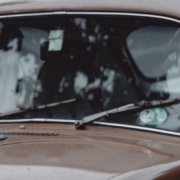Tax Deduct a Business Lunch
How to tax deduct a business lunch. Or breakfast meeting. Or morning and afternoon tea. Or dinner.
Tax Deduct a Business Lunch
Most accountants will tell you that you can’t tax deduct a business lunch, nor a breakfast meeting, nor morning or afternoon tea, nor a business dinner. It is all entertainment. And hence not deductible.
And they are right. BUT…..
There are 5 back doors – FIVE – wide open – that allow you to claim a tax deduction nevertheless.
Backdoor #1 The 4W Test
This is the biggest door of all. Think garage door. And this door exist thanks to TR 1997/17. You have probably never heard of this tax ruling and will never again. But it is your best chance to claim a tax deduction for a meal.
TR 1997/17 allows you to tax deduct a meal if the expense passes the Why, What, Where and When test. So let’s call it ‘The 4W Test’.
If the Why, What, Where and When indicate that the dominant purpose of the meal was business, then it doesn’t count as entertainment.
The Why and What carry the most weight. You must get those right. And then you need at least one more – the Where or the When – or even better both.
WHY did you have it? Taking a client out to lunch means business. Taking out a friend doesn’t.
WHAT did you have? Something purely functional like sandwiches and coffee means business. A three-course meal doesn’t.
WHERE did you have it? Business premises means business. Off site weakens your argument, but doesn’t kill it if the When supports your argument
WHEN did you do it? During business hours means business. At night doesn’t.
So if your meal ticks at least 3 boxes, it is a business expense and hence not entertainment. And so it is tax deductible.
Backdoor #2 Sustenance
If you have a simple meal on business premises without alcohol, the ATO will count it as sustenance as long as it is finger food. Think of a working lunch in the board room with sandwiches and tea, a morning tea in the staff room with muffins and coffee or an all-nighter at your desk with pizza and coke.
Sustenance doesn’t count as entertainment, but is a business expense, hence tax deductible.
Backdoor #3 FBT
If you pay FBT for an expense – any expense – then you can tax deduct that expense even if it is entertainment.
So whenever you pay FBT for a meal, you can tax deduct that portion of the expense that was subject to FBT.
Backdoor # 4 Sudiv 32-B
And then there is another door but a really tiny one. Certain entertainment expenses are tax deductible thanks to exceptions listed in Subdiv 32-B..
This subdivision is long and confusing with tricky details and a long list of exceptions. So we run a real risk of boring you with this one.
So below we have just listed a few to give you an idea, but please email or call if you want to try and fit through this tiny door.
You can tax deduct a meal if it falls under certain employer, seminar, promotion and advertising or other expenses. There is also a specific exception for businesses in the entertainment industry.
If you provide a lunch in an in-house dining facility, that expense might be tax deductible per s32-30. The same might apply to food or drink that would be subject to FBT but is not due to certain exemptions in the FBT Act. If you provide a business lunch at a seminar that lasts 4 hours or more, you can deduct these entertainment expenses per s32-35. If you provide a lunch to promote or advertise your goods or services – a product lunch for example – you may be able to claim a deduction per s32-45, but only if ordinary members of the public have an equal chance to attend your event.
Back Door # 5 Travel
And then there is travel. All bets are off when it comes to travel. When you travel, you can have as lavish a meal as you like and it still counts as a business expense. Just stay off the booze. Alcohol and business don’t mix in the eyes of the ATO.
GST
If your lunch is tax deductible for income tax purposes, then you can also claim the input tax credit in your BAS. But if it isn’t, then you can’t
GST just follows what you do for income tax. Whatever is tax deductible as a business expense, gives you an input tax credit (as long as it is a taxable supply).
MORE
Disclaimer: numba does not provide specific financial, legal or tax advice in this article. All information on this website is of a general nature only. It might no longer be up to date or correct. You should contact us directly or seek other accredited tax or legal advice when considering whether the information is suitable to your circumstances.
Liability limited by a scheme approved under Professional Standards Legislation.
Last Updated on 17 August 2020

 NSW Payroll Tax
NSW Payroll Tax Latest Articles
 Why Saving Tax is All about Marginal Tax Rates (Almost)March 3, 2025 - 2:34 pm
Why Saving Tax is All about Marginal Tax Rates (Almost)March 3, 2025 - 2:34 pm The 9 Ways to Pay Less Tax: There is Nothing Else But These 9March 3, 2025 - 2:33 pm
The 9 Ways to Pay Less Tax: There is Nothing Else But These 9March 3, 2025 - 2:33 pm Should I Buy or Lease a Business Car in Australia?March 3, 2025 - 2:33 pm
Should I Buy or Lease a Business Car in Australia?March 3, 2025 - 2:33 pm PSI, PSE and PSB – Get This Right and Pay Less TaxMarch 3, 2025 - 2:32 pm
PSI, PSE and PSB – Get This Right and Pay Less TaxMarch 3, 2025 - 2:32 pm
CONNECT WITH US
TALK MORE
Got a question? Just call, email or use the contact page.
We are also part of Australia's podcast for accountants - Tax Talks.










